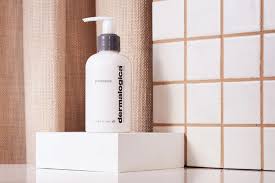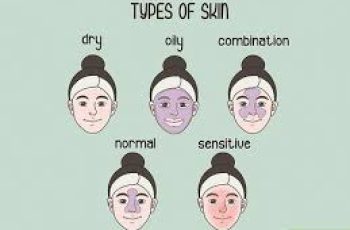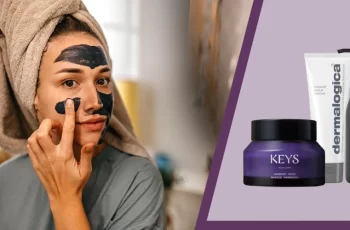
How Often Should You Use an Oil Based Cleanser with Dry Skin?
When it comes to cleansing the skin, we really are spoilt for choice! From water to oil there is a formula out there that will suit your skin type and become an important step in your skincare routine. If you have a dry skin type, you of all people will understand how tricky it can be to find a cleanser that not only removes any traces of makeup and debris and remains gentle without drying out the skin any further. This is why so many are reaching for oil-based cleansers, but how often should you be using them? Let’s dive right in and find out in today’s post, and remember if you’re trying to find out which skin type you have you can in our guide about the four most common skin types.
Should you use an oil cleanser on dry skin?
Absolutely! All cleansers generally perform the same way, they can remove makeup, impurities and remove an excess oil. The main difference would be the formulations and how they would work against the skin type you have. For example, cream-based are known for being beneficial for dry skin types due to the moisturising properties but you are usually unable to use them on your eyes as they can cause some irritation. Gel formulas are ideal for skin types that are oilier and blemish-prone but can have very drying effects on already dry skin. This is why cleansing oils are the best “all-rounder” when it comes to cleansing products. Not only will you find you can achieve a deeper clean and reach further down into the pores, but oil cleansers are easier to rinse away leaving the skin healthy with great clarity.
How does oil cleanse dry skin?
Cleansing oils are known for their highly moisturising properties and their ability to dissolve any oils found in products, such as makeup and excess sebum found on the skin. This allows your skin to remain balanced without causing the skin to become stripped or dried out from harsh ingredients. If you also have some concerns with a greasy residue, you will also find oil cleanser contain the ingredient, emulsifier meaning they are able to be dissolved and combine with water to rinse off the skin easily.
The formula of oil cleansers is highly effective, and as we have shared nourishing to the skin without leaving any residue or build-up meaning an oil cleanser is a powerful product to use for almost every skin type. Here are some examples of the benefits of cleansing oils
Rinses off the skin completely leaving it feeling soft and subtle with no signs of greasy residue
Fast and effective at removing tough makeup products, such as waterproof mascara, dirt, debris and other tough products, such as a daily SPF
Can work wonders on its own or teamed with another water-based cleanser when double cleansing the skin
Many formulations available, from synthetic or natural ingredients making it a great product to use on all skin types
There you have some benefits for using a cleansing oil you can expect to see a number of promising results, especially if you have a dry skin type. You will find your skin will be fully cleansed without any dryness or tightness to the skin.
How often should you use an oil cleanser?
Oil cleansers do sound too good to be true, and in some ways they are. By this I mean you shouldn’t overuse cleansing oil as this can lead to some skin problems further down the line. Due to the binding effect of the oil in the formula the possibility of removing too much of the vital sebum of the skin can result in the skin become tight, dry and more likely to experience some skin damage. This is because sebum falls into the cracks of the skin cells on the outer layer of the skin and creates a protective, waterproof barrier with the ability to combat any free radicals and other environmental aggressors that can cause damage to the skin. By keeping a good daily skincare routine and avoid using a cleansing oil more than once a day will help the skin remain balanced, glowing and healthy.
Should you oil cleanse in the morning or night?
This is really down to you and your routine and lifestyle. You can use a cleansing oil on its own or as part of a double cleanse during the morning or evening.
Morning Use;
Great to use in the morning if you applied an overnight mask or facial oil the night before. Using a cleansing oil in the morning will help remove any traces of these products, remove any debris and impurities that can penetrate into the pores
Using oil cleansers in the morning can help hydrate the skin for the rest of the day and help combat any free radical damage
Effective at getting the skin nourished and pores cleared allowing any following products applied to work their way into the skin
Evening Use;
Texture of the oil is a more luxurious application which plays a part in selfcare after a long day
Can remove all traces of makeup product, dirt, bacteria and build-up of other impurities from the day
Is a more gentle way of removing all products without stripping the skin of vital oils
The great benefit for cleansing oil is how you are able to use it and how it suits your lifestyle and daily routine. If, however, you find your skin to suffer from any form of reaction you can check out our blog on how to stop them. It is always best to double check a product is suitable for you by consulting your doctor or dermatologist.
Can I only use an oil cleanser?
Oil cleansers are a great contribution to anyone’s skincare routine, with many using them mainly as an additional product to perform a double cleanse. This is a method that has been proven to have a number of benefits to the skin in helping the texture, clarity and tone of the complexion becoming more even. Should you want to only use oil cleanser then it is an idea to keep in mind how overusing this product can cause imbalance to the skin resulting in it becoming tight and uncomfortable. The best way to include an oil cleanser into your routine is by using it once in the evening, this will result in your pores being cleared and build-up of product removed allowing the skin to absorb any other products you apply after, such as AHA serums, moisturiser or facial oil.
Are you a fan of cleansing oils? Come and join us on Instagram and join the family. Don’t miss out on more skincare tips and expert advice over on our YouTube channel! Come and find us on The Green Sofa by hitting the subscribe button, you won’t regret it!


